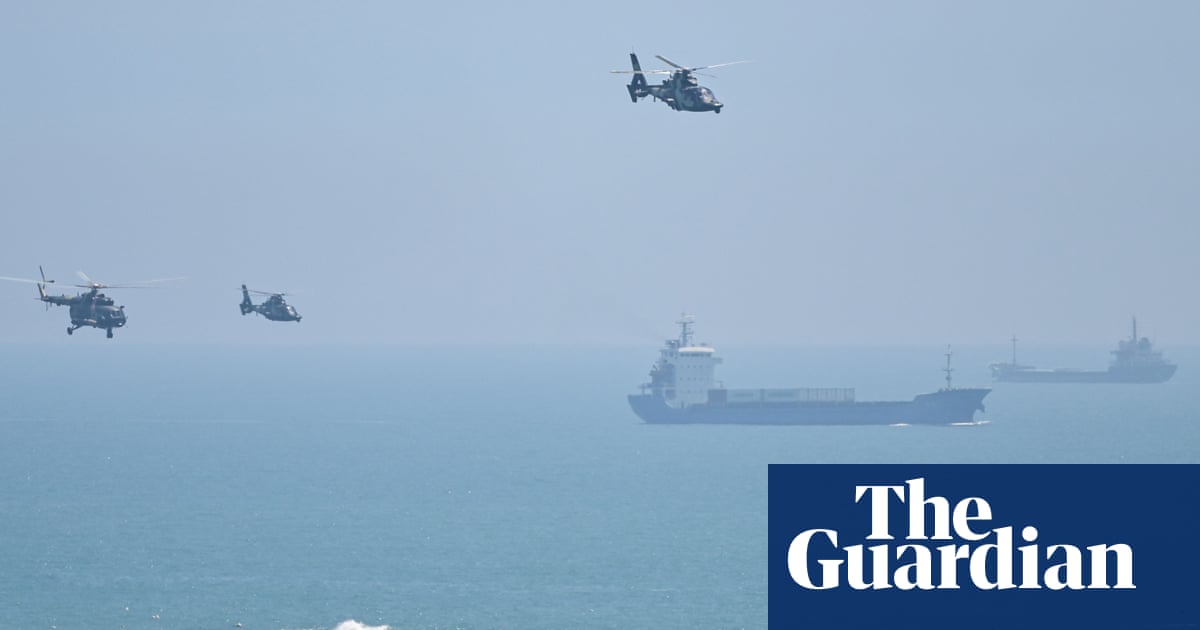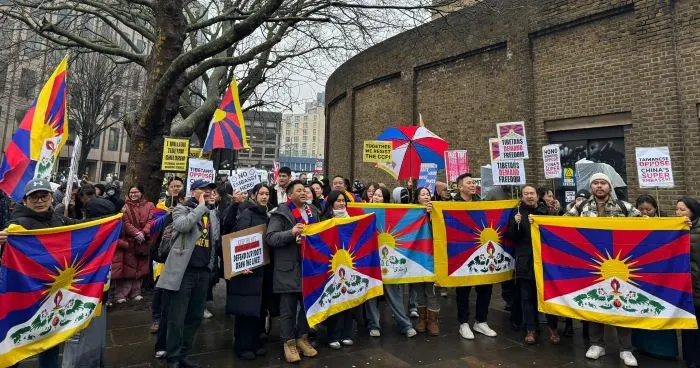US announces $1.1bn arms sale to Taiwan, angering China
Show caption Chinese helicopters fly off Fujian province ahead of military drills around Taiwan in August. The Biden administration has announced a $1.1bn arms sale to Taiwan including missiles and air defence systems. Photograph: Héctor Retamal/AFP/Getty Images Taiwan US announces $1.1bn arms sale to Taiwan, angering China Boost to Taiwanese air defences forms biggest part of deal amid heightened tensions after Beijing’s enhanced military drills around island Staff and agencies Sat 3 Sep 2022 04.30 BST Share on Facebook
Share on Twitter
Share via Email
The Biden administration has announced a $1.1bn arms sale to Taiwan as US-China tensions escalate over its status.
The sale included $355m for Harpoon air-to-sea missiles and $85m for Sidewinder air-to-air missiles, the state department said.
The largest portion of the sale is a $655m logistics support package for Taiwan’s surveillance radar programme, which provides air defence warnings. Early warning air defence systems have become more important as China has stepped up military drills near Taiwan, which it regards as a renegade province.
The state department said the equipment was necessary for Taiwan to “maintain a sufficient self-defence capability”. The administration notified Congress of the sale after close of business on Friday.
The administration said the deals complied with the US one-China policy. It also urged Beijing “to cease its military, diplomatic and economic pressure against Taiwan and instead engage in meaningful dialogue with Taiwan”.
Liu Pengyu, spokesperson for the Chinese embassy in Washington, said the arms sale “severely jeopardises China-US relations and peace and stability across the Taiwan Strait. China will resolutely take legitimate and necessary countermeasures in light of the development of the situation”.
Laura Rosenberger, the White House’s senior director for China and Taiwan, said late on Friday that as China “continues to increase pressure on Taiwan – including through heightened military air and maritime presence around Taiwan – and engages in attempts to change the status quo in the Taiwan Strait, we’re providing Taiwan with what it needs to maintain its self-defence capabilities”.
The acrimony and strident rhetoric between the US and China over Taiwan have increased sharply since the House speaker, Nancy Pelosi, visited the island in August. Since Pelosi’s trip to Taipei there have been at least two other congressional visits and several by governors of US states, all of which China has condemned.
On Thursday, Taiwan’s military said it shot down a drone hovering over one of its island outposts just off the Chinese coast in an incident that underscored the heightened tensions. A day earlier, Taiwan said it had warned off drones hovering over three of the islands it occupies off the coast of the Chinese port city of Xiamen.
China claims Taiwan as its own territory, to be annexed by force if necessary. China cut off even informal contacts following the election of the independence-leaning Tsai Ing-wen as Taiwanese president in 2016.
Tsai’s administration has pushed for a strengthening of anti-drone defences as part of a 12.9% increase in the defence ministry’s annual budget next year. That would boost defence spending by an additional $NTD47.5bn (US$1.6bn), for a total of $NTD415.1bn.
The US described Chinese drills in August as a severe overreaction and responded by sailing two guided missile cruisers through the Taiwan Strait, which China has declared to be its sovereign waters.
Taiwan’s defence ministry expressed its thanks for the arms sale announcement, adding that China’s recent “provocative” activities represented a serious threat and the sale would help it face China’s military pressure.
“At the same time, it also demonstrates that it will help our country strengthen its overall defence capabilities and jointly maintain the security and peace of the Taiwan Strait and the Indo-Pacific region.”
The arms sales must be reviewed by the US Congress, but both Democratic and Republican congressional aides said they did not expect opposition.
With the Associated Press and Reuters













